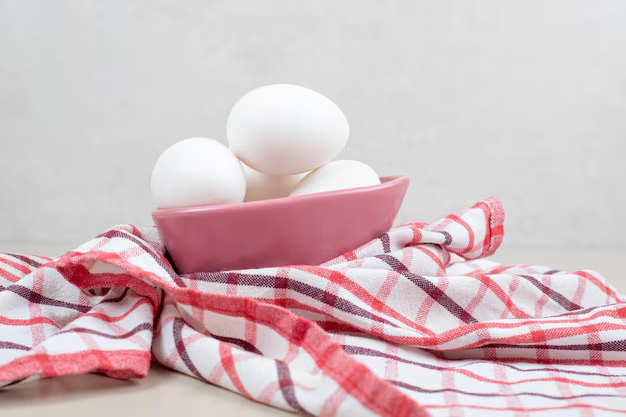How Long Do Eggs Stay Fresh in Your Refrigerator? 🥚
Eggs are a staple in kitchens around the world, loved for their versatility and nutritional value. But there's one question that often puzzles many home cooks: How long can you keep eggs in the refrigerator before they become unsafe to eat? Understanding the shelf life of eggs can help you make better decisions about food storage, reduce waste, and ensure you're consuming them at their best quality.
In this guide, we'll dive into the factors that influence egg longevity, practical storage tips, signs of spoilage, and common misconceptions. Let's crack open the details!
🕒 The Typical Shelf Life of Eggs
Understanding Egg Carton Dates
When you purchase eggs, you'll notice labeling that might include a sell-by date, an expiration date, or a pack date. These dates help you determine freshness but can be confusing without context.
- Sell-By Date: This is primarily for retailers, suggesting when eggs should ideally be sold to maintain optimal freshness.
- Expiration Date: This indicates how long eggs can remain fresh and safe to consume, typically set a few weeks after the pack date.
- Julian Date: A three-digit code representing the consecutive day of the year eggs were packed, which can provide insight into how long eggs have been in storage.
General Shelf Life Guidelines
In the refrigerator, fresh eggs typically remain good for 3 to 5 weeks beyond the pack date. Proper storage plays a crucial role in maintaining this timeline.
📦 Best Practices for Storing Eggs
Carton Storage is Key
Keeping eggs in their original carton is not just for convenience; it's essential for maintaining freshness. The carton helps protect eggs from absorbing strong odors in the fridge and minimizes the risk of shell damage.
The Coldest Spot is Ideal
Store eggs on a middle or lower shelf in the refrigerator rather than in the door. The refrigerator door is subject to temperature fluctuations, which can affect the quality of your eggs. Eggs thrive in consistent, cold temperatures. 🥶
Handling Dos and Don’ts
- Do handle eggs with clean hands and utensils to avoid introducing bacteria.
- Don’t wash eggs before storing them, as this can remove the natural protective coating, increasing vulnerability to contamination.
🥚 How Freshness Affects Egg Quality
Fresh vs. Older Eggs: What Changes?
Fresh eggs have firmer whites and bright yolks. As eggs age, the whites become thinner, and the yolks flatten. While these changes affect cooking and emulsifying properties, aged eggs can still be safe if stored correctly.
Sensory Indicators of Freshness
- Appearance: Look for clean, unbroken shells.
- Texture: Fresh eggs hold their shape, while older ones may spread.
- Smell: A sulfur-like or off odor is a red flag, indicating spoilage.
🔍 Identifying Bad Eggs
The Float Test
A simple water test can be a quick way to gauge an egg’s freshness:
- Place an egg in a bowl of water.
- Sinks and lays flat: The egg is fresh.
- Sinks but stands upright: It’s still good but should be used soon.
- Floats: It's time to toss the egg.
Use Your Senses
Eggshells with cracks, slimy textures, or any unusual smells are indicators that they should not be consumed.
❌ Common Egg Misconceptions
Myth Busting
Red Spots Mean Spoiled Eggs:
- Red spots or blood spots inside an egg are harmless and not an indication of spoilage.
Egg Color and Quality:
- The color of the eggshell (brown vs. white) doesn't affect quality or nutritional content, just breed differences.
Washing Eggs for Safety:
- Washing isn’t necessary and can make eggs more prone to bacteria if not done right.
🧑🍳 Cooking and Using Eggs Before They Expire
Batch Cooking Ideas
Consider these methods to use up eggs before they reach their peak freshness:
- Hard-boil or scramble to add to salads or sandwiches.
- Bake goods like muffins or quiches.
- Freeze in batches after lightly beating them for future recipes.
Cooking Safety Tips
Always cook eggs to the right temperature to ensure safety. Scrambled eggs should be done until firm, and dishes like frittatas should reach 160°F.
📋 Egg Storage Summary
Here’s a handy guide to ensure your eggs remain fresh and safe:
- 🥚 Keep eggs in their original carton to protect them from odors and damage.
- 🌡️ Store eggs in the coldest part of your refrigerator for optimal freshness.
- 🕒 Use eggs within 3 to 5 weeks from the pack date for best quality.
- 🔍 Perform the float test to quickly assess freshness.
- 🥄 Use fresh eggs for dishes that highlight structure and texture, like poached eggs or soufflés.
Eggs are a kitchen essential, and understanding how to store them correctly helps in reducing food waste and maximizing their culinary potential. Armed with these insights, you can confidently manage your egg supply, ensuring each glorious golden yolk and pristine white is put to good use. Remember, an egg a day can bring a world of culinary creativity your way! 🍳

